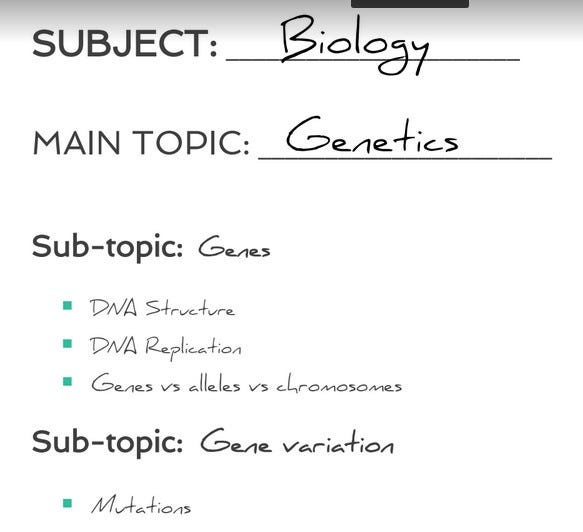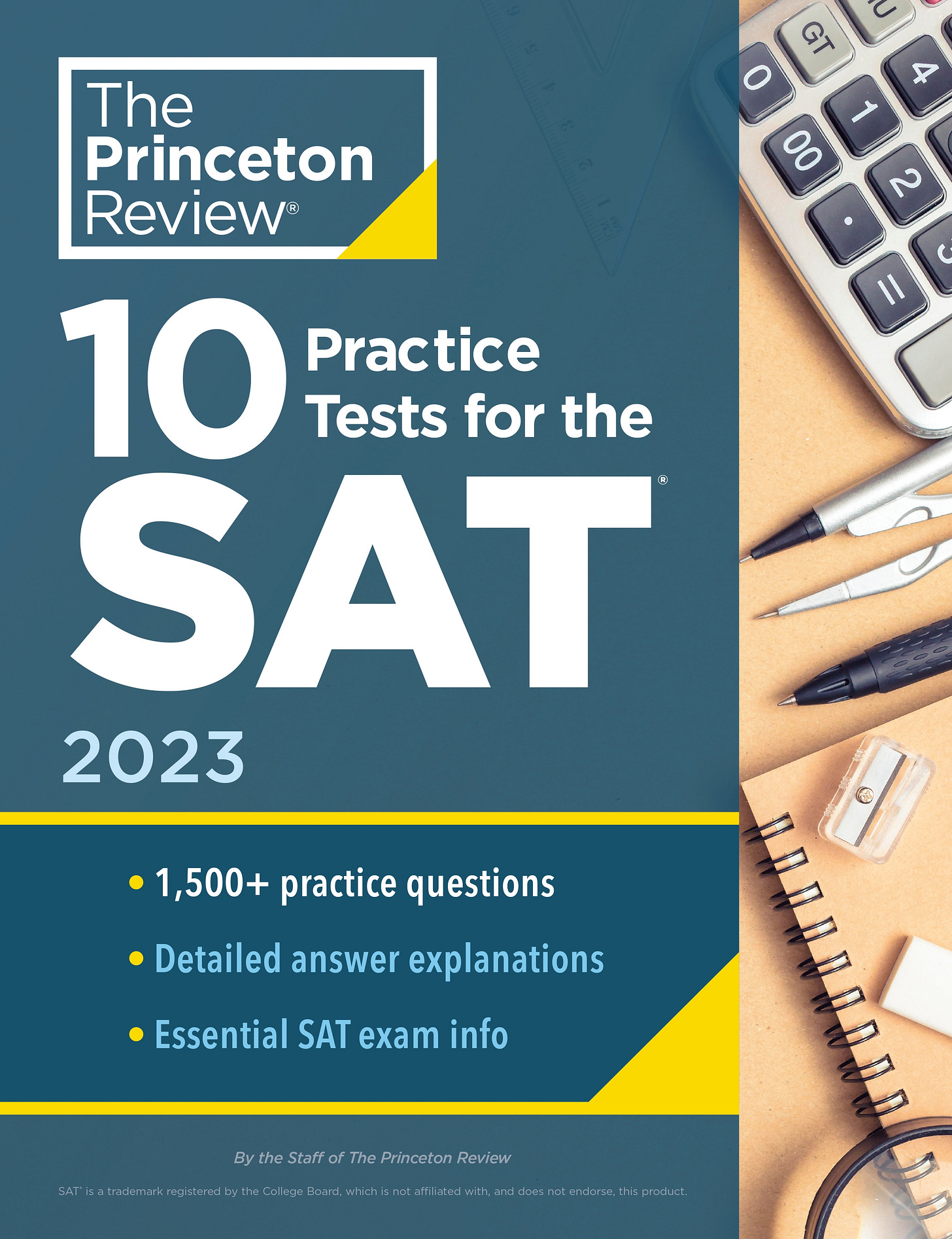The Exam Study Process: An Overview for the Struggling Teen
A practical tour of the exam study process for teens who don't know where to start and feel totally overwhelmed.
So, it’s crunch time.
Your teen is coming up to the last 100 metres of the lead up to their exams.
This means that many teens, and perhaps including yours, will be staring into the void; the prospect of studying for multiple exams too daunting to face head on.
Suddenly, your teen knows how Frodo and Sam felt as they stared across the plains of Mordor knowing they had no choice but to get to Mt Doom.
If this is an accurate description of how your teen feels, I want to help change their view of their upcoming exam study — to shine some light on the process and make the prospect of studying far less daunting.
To that end, below is an overview of how I used to go about navigating the exam study process.
At the least, this overview should give your teen a starting point (and I reakon starting is one of the hardest parts of studying), and a blueprint from which to build their own exam study process.
I have kept the overview relatively simple. If I did a deep dive on every aspect of the exam study process this post would be a book, but you can get more details by following the links throughout.
I hope it helps. Here we go.
Step 1: Making a Plan
I think one of the big reasons why teens feel stuck and overwhelmed when it comes to studying is because they don’t know how to start.
We all know that feeling right? When you have a bit of a heart-sink task ahead of you — life admin, your taxes — starting sucks, and it takes determination to overcome that initial inertia.
I remember vividly that sinking feeling before starting exam study, that oh god I have so much to do…
But I have good news; there two things your teen can do to help overcome that sense of inertia or even dread they might be feeling.
1A Make an Exam Study Timetable
I used to start my exam prep by making an Exam Study Timetable — a simple timetable document that set out what topics I was going to study when during the lead up to my exams (something like what I have depicted in the image below).
Now, I was at high school on the cusp of the Internet, and I got my first laptop in my second to last year of high school, so my study was probably a lot more paper based than your teen’s might be.
This is to say that how your teen goes about making their Exam Study Timetable is entirely up to them. I could not care less what it looks like or how pretty it is — as long as there is one.
Making a timetable might be a suggestion your teen rolls their eyes at, but I am not just paying lip service to a clichéd study task. Making a timetable can actually benefit your teen in very tangible ways.
First and most obviously, having a timetable will tell your teen what to study next.
This prevents that all too common scenario where teens sit down at their desk to study only to go, “now what?”, and immediately feel any enthusiasm they had to study instantly evaporate.
Second, a timetable will help keep your teen accountable and on track.
Making a timetable is like making a commitment to study. There is something about the process of making a timetable, committing ink to paper, that makes us much more likely to stick to something.
Without a timetable your teen is more likely to study only when they ‘feel like it’, and I think we can all agree that’s probably not the best strategy.
Thirdly — having an Exam Study Timetable can really help reduce stress.
Like it was yesterday I remember the feeling of immense relief after I made an Exam Study Timetable, because it showed me, oh I DO have time to get through everything; this IS achieveable.
If your teen keeps everything they have to do before exams only in their head, that’s a lot of stuff to keep tabs on; a lot to feel stressed about.
Getting it all out on paper in a timetable is like a release of that brain pressure. Your teen doesn’t need to keep a constant mental list of everything they need to study — they can let the timetable do that job and just focus on the next task in front of them.
1B Figure out what they need to study
At the same time as making an Exam Study Timetable, further major benefits await your teen if they also take note of what topics they need to study before the exam.
Hopefully they will have been given a curriculum outline at school they can work from, but regardless, at this stage of the school year they should have a pretty good idea of what topics are likely to come up in the exam.
For maximum organisation, I suggest your teen spends a little bit of time making Subject Maps, which are a simple way of recording what topics and subtopics they need to study.
Your teen can use their Subject Maps to make their Exam Study Timetable, with the idea being that their timetable includes time slots for every topic they need to study.
Step 2: Sponge Time
Now it’s time to start really studying.
It’s the phase of exam study where your teen needs to take in and process the information they need to know for their exams, and it should make up the majority of your teen’s exam study time.
This will require your teen to do some or all of the following in accordance with what works best for them:
Make study notes
Read (books, notes from class, explanations online)
Watch videos
Draw diagrams
Make flash cards
Discuss tricky concepts with a friend
Any other study techniques that work for them
Step 3: Skill Development
While Step 2 is mostly about getting all of the information your teen needs to know for their exams into their brain, Step 3 is all about applying that information.
The is really important, because applying what they know to answer an exam question is the skill your teen will be required to demonstrate in the actual exam.
Exam questions don’t ask, Write down everything you know about molecular compounds. They ask your teen to answer a specific question, which requires your teen to actually think and apply what they know.
The key is for your teen to practice this skill during their exam study. I don’t recommend just winging it on exam day.
This is where a lot of teens go wrong, and I think is why I get a lot of questions from parents along the lines of, My teen does study but their grades are still below where they should be please help!
The types of study techniques that will allow your teen to practice applying what they are studying include:
Writing practice essays
Answering practice questions
Answering questions taken from past exam papers
Re-writing study notes in a way that prepares for exam questions
Steps 2 and 3 can sit alongside each other if that works for your teen. For instance they might like to ‘test’ how they’re going by answering a few relevant past exam questions once they have finished making study notes for a particular topic.
Answering practice questions will also reveal to your teen any holes in their knowledge; if they’re not quite able to answer a practice question to a decent standard, that probably means they need to go back a step and check they really understand the underlying concepts.
Step 4: Refinement Phase
The purpose of Step 4 is give your teen the best chance of getting the grades they are truly capable of by polishing their understanding of everything they have studied so they are ready to face the exam with confidence.
During Step 4 your teen needs to turn their attention squarely to the exam and the questions they are likey to face.
As I talked about last week, of course your teen cannot know the exact exam questions they are going to be asked in the exam, but they should be able to make quite accurate predictions about what topics and types of questions are likely to come up.
I want your teen to really give some time and attention to thinking about what those topics and questions are likely to be.
Similarly to Step 3, this might involve your teen answering more past exam and practice questions so they give themselves the opportunity to practice giving the best answer they can before the exam.
Also during Step 4, I used to find reading over my study notes extremely helpful for my memory retention.
Step 4 also means thinking about the nitty gritty of the exam they are about to face; how long will it be? Will the exam have different parts (eg essays, MCQs, short answers, long answers, a mixture)? How long should they spend on each section? What stationery do they need to take with them?
Depending on how prepared your teen is, this Step 4 comes in the last week or two before the exam, but in reality all of these steps can be fluid and there is likely to be overlap between them all.
Emarking on exam study can be extremely daunting for a lot of teens, particularly when they don’t get have the study skills they need to get through it without a tonne of stress. But it doesn’t have to be this way.
I hope this overview will help light the way for your teen through Mordor.
How’s your teen feeling about their exams? What do they think will be the hardest part? Let’s talk it out in the comments.
Clare






